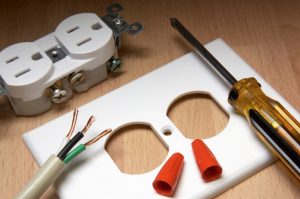In the ever-evolving landscape of home construction, the history of wiring materials has witnessed various shifts. One such phase introduced aluminum wiring as a cost-effective alternative in the mid-20th century. While it had its advantages at the time, the use of aluminum wiring in homes has become a concern in recent years due to safety issues.
We’re going to look into the rise of aluminum wiring, the problems associated with it today, and why homeowners should consider professional assessment and rewiring if their homes may have outdated wiring. Our experienced and licensed professionals as the technicians you can count for your electrical wiring in Buffalo, NY.
The Rise of Aluminum Wiring
In the 1960s and 1970s, a surge in demand for affordable materials led to the adoption of aluminum wiring in residential construction. With its lower cost compared to copper, aluminum wiring gained popularity among builders and homeowners alike.
Aluminum wiring was initially embraced for its lightweight nature, making it easier to handle during installation. Additionally, it was less expensive than copper, contributing to its widespread use in electrical systems. But despite its initial popularity, concerns over its long-term reliability and safety began to surface.
The Problem With Aluminum Wiring Today
As homes with aluminum wiring age, safety concerns have become more pronounced. One significant issue is the tendency of aluminum to expand and contract with temperature changes, leading to loose connections and potential fire hazards. Over time, oxidation can occur, further compromising the integrity of the wiring.
The increased risk of fire is a significant drawback associated with aging aluminum wiring. High resistance connections and overheating at the points where aluminum wires connect to devices or other wires can pose serious safety risks, making it crucial for homeowners to address the issue promptly.
Upgrading homes with aluminum wiring to meet modern safety standards poses challenges. Homeowners may face difficulties finding compatible connectors and devices, making professional assistance necessary for a comprehensive solution.
Signs Your Home Might Have Aluminum Wiring
Aluminum wiring can be identified by its silver-colored appearance, as opposed to the copper’s typical reddish hue. Checking the markings on the wiring and electrical panels can also provide insights into the material used.
Homeowners should be vigilant for signs of trouble, including flickering lights, warm outlets or switch plates, and a burning odor near switches or receptacles. These symptoms may indicate potential issues with aluminum wiring that require attention.
Why Professional Assessment and Rewiring Are Necessary
Given the potential safety hazards associated with aluminum wiring, consulting professional electricians is crucial. They have the expertise to identify, evaluate, and address the issues related to outdated wiring, ensuring the safety and functionality of the electrical system.
Professional electricians can conduct comprehensive electrical inspections to identify potential problems with aluminum wiring. This includes checking for loose connections, signs of overheating, and assessing the overall condition of the wiring throughout the home. Licensed electricians also play a crucial role in upgrading outdated wiring systems. They can recommend appropriate solutions, such as rewiring with copper or installing specialized connectors to mitigate the risks associated with aluminum wiring.
If you have any suspicions of electrical wiring in your house, please contact our team.
Scherer Electric Is Western New York’s Favorite Electrician! Call us when you need rewiring and electrical upgrades done for your home.






